In a previous post, I mentioned how everyone’s rest requirements can be different. A healthy person’s body is able to handle a bigger blow of stress, and recover with less consequences. People with chronic illnesses on the other hand, learn to pay constant attention to the state of their body. If there is one thing we can agree on through our assorted experiences, it is that sleep has a huge impact on the quality of our our lives. Many things play a role in the quality of your sleep, including good sleep hygiene, and if your bed is well suited for your needs and body type.
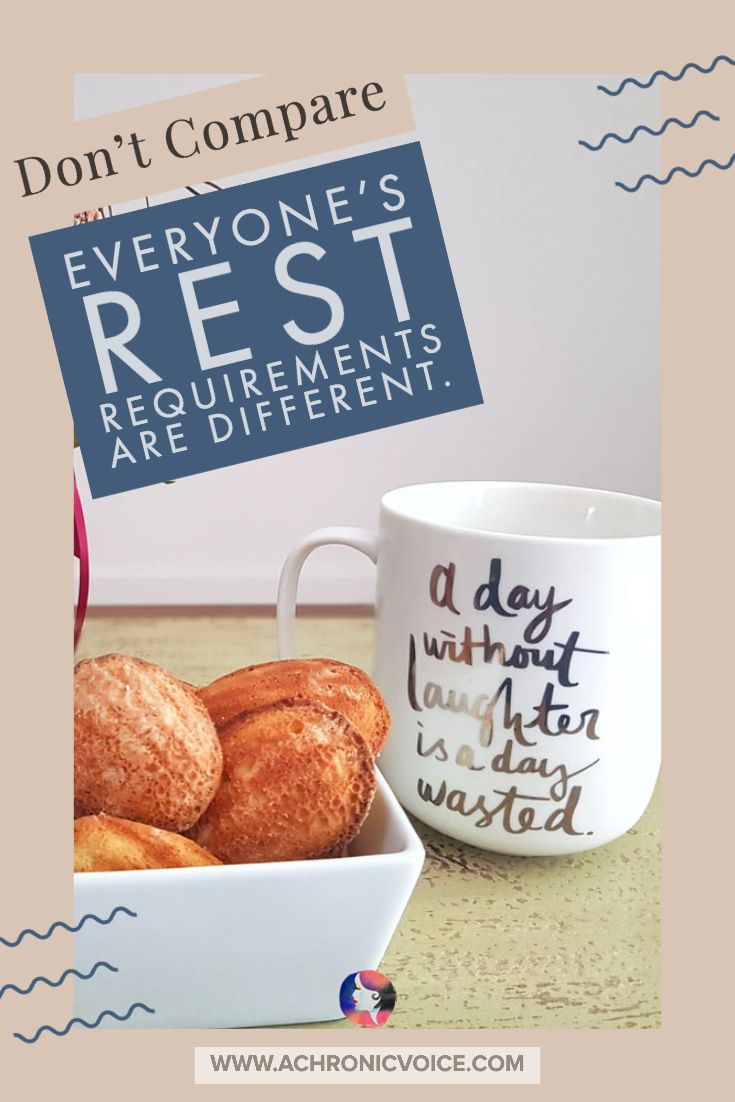
In modern society, sleep is often considered a luxury more than a necessity, but your brain isn’t loafing when you rest. It isn’t so much a descent from an active to passive state. It is more of a switch of modes from energy consumption to replenishment and restoration. Your brain redirects blood and energy, and your body undergoes maintenance and repair. Even the fastest car needs to undergo constant maintenance, what more your body.
Let us take a quick look at what goes on within our bodies when we sleep, and how it can affect us.
“Rest is not idleness, and to lie sometimes on the grass under trees on a summer’s day, listening to the murmur of the water, or watching the clouds float across the sky, is by no means a waste of time.” – Sir John Lubbock
Table of Contents
1. Garbage Collection
Our body has a garbage collection system known as the Glymphatic System, which becomes 10 times more active when we are asleep. This system is in charge of taking out the protein trash such as amyloid-beta. An accumulation such proteins leads to neurological diseases such as Alzheimer’s. In fact, almost all neurodegenerative diseases result from a build up of this toxic protein.
Research has also found that the brain’s cells reduce up to 60% in size when we are asleep, which allows for efficient waste removal. (This fact fascinates me, as the surgeon who tried an experimental technique during my heart surgery mimicked this concept).
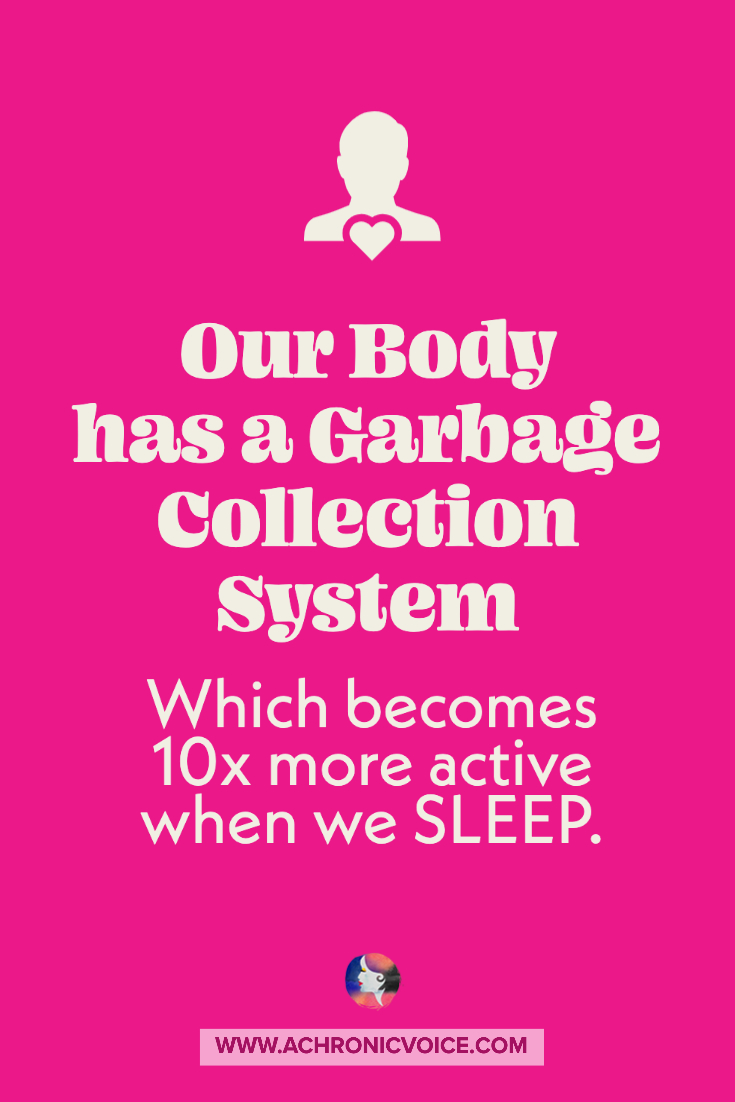
2. Circulation of TNF (a Cancer Killer)
A cancer killer known as TNF (tumour necrosis factor alpha) starts to circulate when we are asleep. Research has shown that both the amount as well as the effectiveness of it reduces by a third in those who slept after 3am.
3. Immune System Resistance and Recovery
You may already have noticed that sleeping aids in recovery when you are sick. This may be due to an increase of infection resisting proteins produced by our immune systems when we sleep. Moderate amounts of sleep deprivation also reduces the levels of white blood cells in our bodies, which play a big role in our body’s defence system.
Studies have also shown that in only one week of sleep deprivation, genes involved in inflammation and more were activated. Millions of people are sustaining damage to their bodies in this manner.
4. Tissue Renewal and Repair
The artificial lights that we use round the clock in modern society resets our Circadian Rhythm as much as exposure to the sun does. This forces our bodies to work overtime. As a result, physical processes such as digestion and cell renewal become less efficient.
Every tissue in the body, from those in our muscles and bones right down to those at the cellular level, renews at a faster rate while asleep.
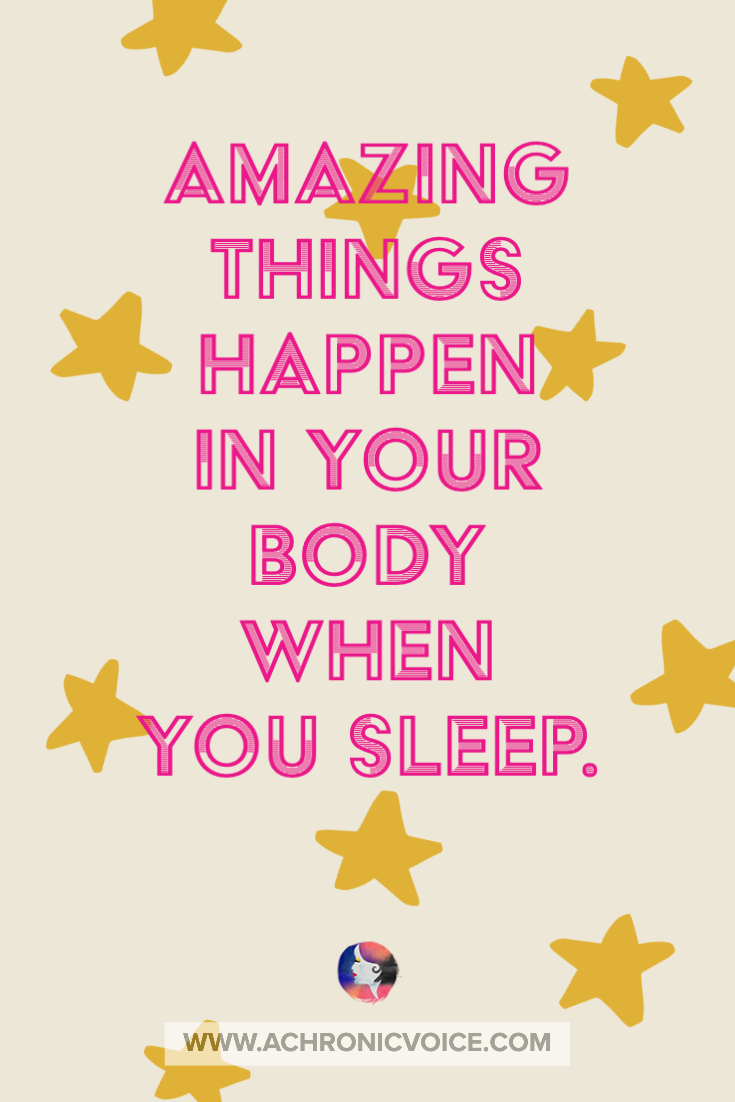
5. Processing of Blood Sugar
Studies have shown that the ability to process blood sugar in healthy young men were reduced by up to 30% after only getting four hours of sleep per night for a week. This result nearly matches those of diabetics. There was also a huge drop in their insulin response, and elevated levels of cortisol. This is a stress hormone which can lead to hypertension and memory impairment. Research is also ongoing from this finding, to understand the link between sleep and obesity.
6. Hormone Regulation
Sleeping moves our body from a catabolic to anabolic state. That is, from one of stimulation, to one of conservation, repair and regrowth.
Many of us are familiar with melatonin and associate it with sleep supplements. In fact, it is a hormone that also helps in the regulation of other hormones within our body, too. Apart from maintaining our body’s circadian rhythm, it is also linked to female reproductive hormones and more.
7. Skin Clean Up & Repair
The top layer of our skin comprises of dead cells that are closely packed together. They shed throughout the day, but the metabolic speed of our skin speeds up during sleep. This enables these dead cells to be shed at a faster rate. A lack of sleep for a continued period of time can also cause premature ageing of the skin and permanent discolouration.
Pin to Your Sleep & Infographics Boards:
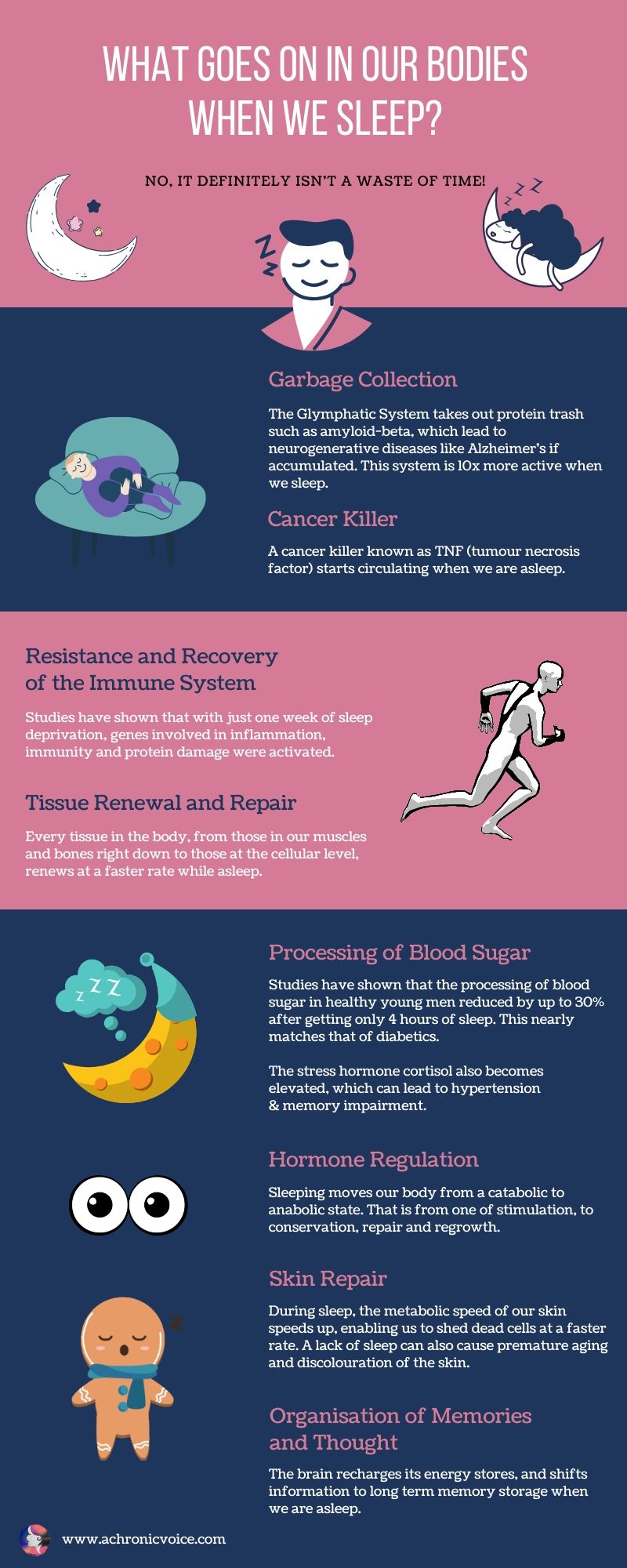
8. The Importance of Sleep Cycles
A typical night of sleep consists of five different cycles, each lasting for about 90 minutes. At stage 4, which is the deepest level of sleep, blood that usually flows to our brain is redirected to our muscles for restorative purposes instead. Our brain waves are able to slow down by 50% at this stage, as the mental burden has reduced.
At stage 5, which is also known as REM (Rapid Eye Movement) sleep, our brain is actually in a state of high activity. Whether we remember them or not, this is when we dream, without which we would go mad.
9. Organisation of Memories and Thought
A sharp increase in blood to brain areas involved in memory and emotion processing also occurs during REM sleep. The brain recharges its energy stores, and does some housekeeping. It processes and shifts the day’s information to long term memory storage.
This is but a brief list that skims the surface of sleep and its purposes. Yet it is enough to see that our bodies are hard at work not only when we are in physical motion, but also whilst at rest. So don’t feel bad about going to bed now if it’s time – your body has other very important jobs to attend to!
Pin to Your Sleep & Health Boards:
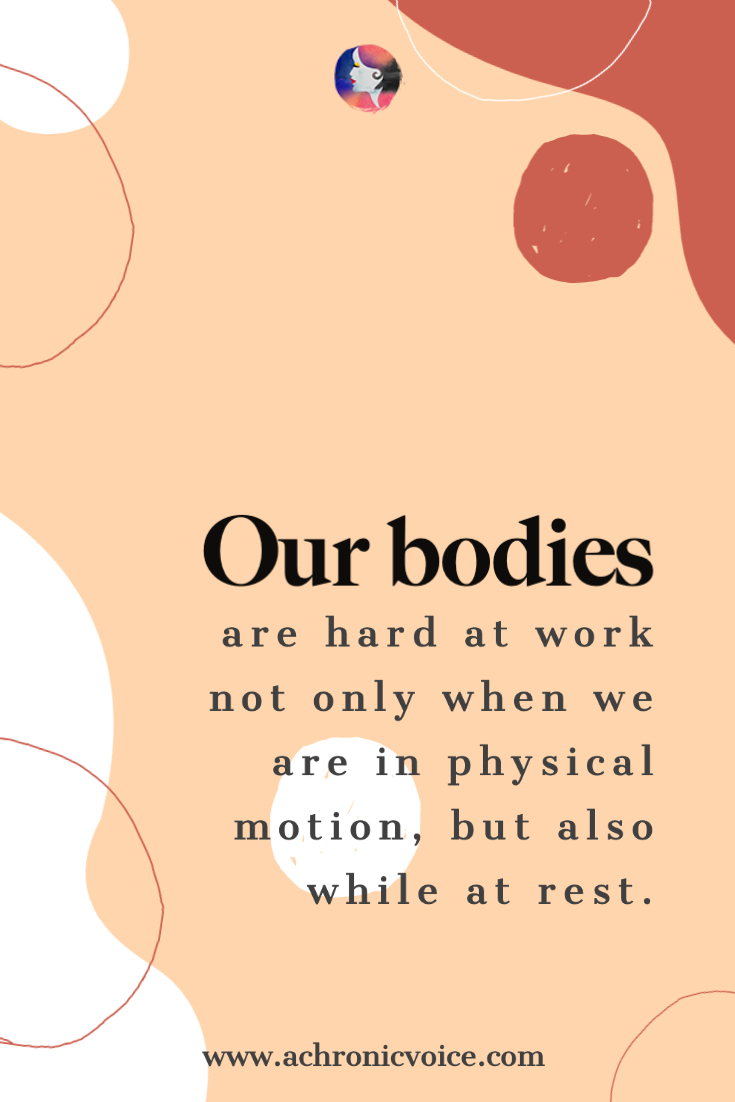
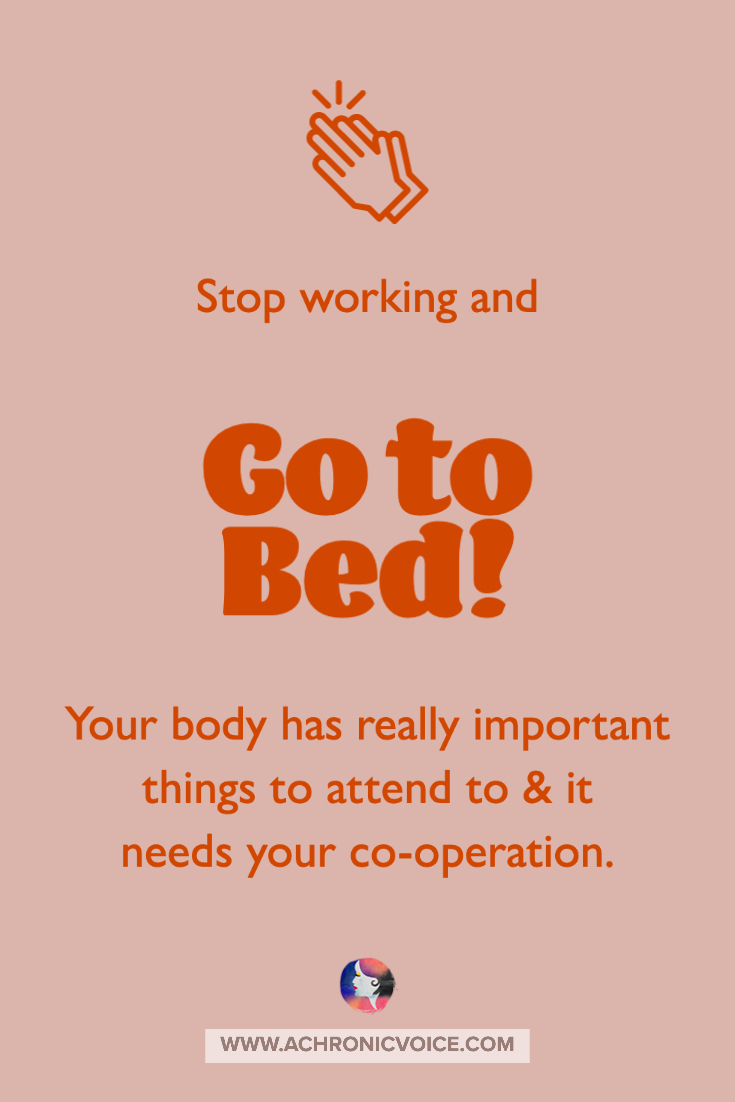
*Please Note: My research for this article involved various online sources. I have checked for the credibility of information to the best of my ability, but I am not a doctor. Always consult your physician before changing any medications or routines!
Read More: How to Rewire Your Brain to Manage Chronic Pain (& Resources to Help)
If you liked this article, sign up for our mailing list here so you don’t miss out on our latest posts! You will also receive an e-book full of uplifting messages, quotes and illustrations, as a token of appreciation!
Pin to Your Sleep Boards:
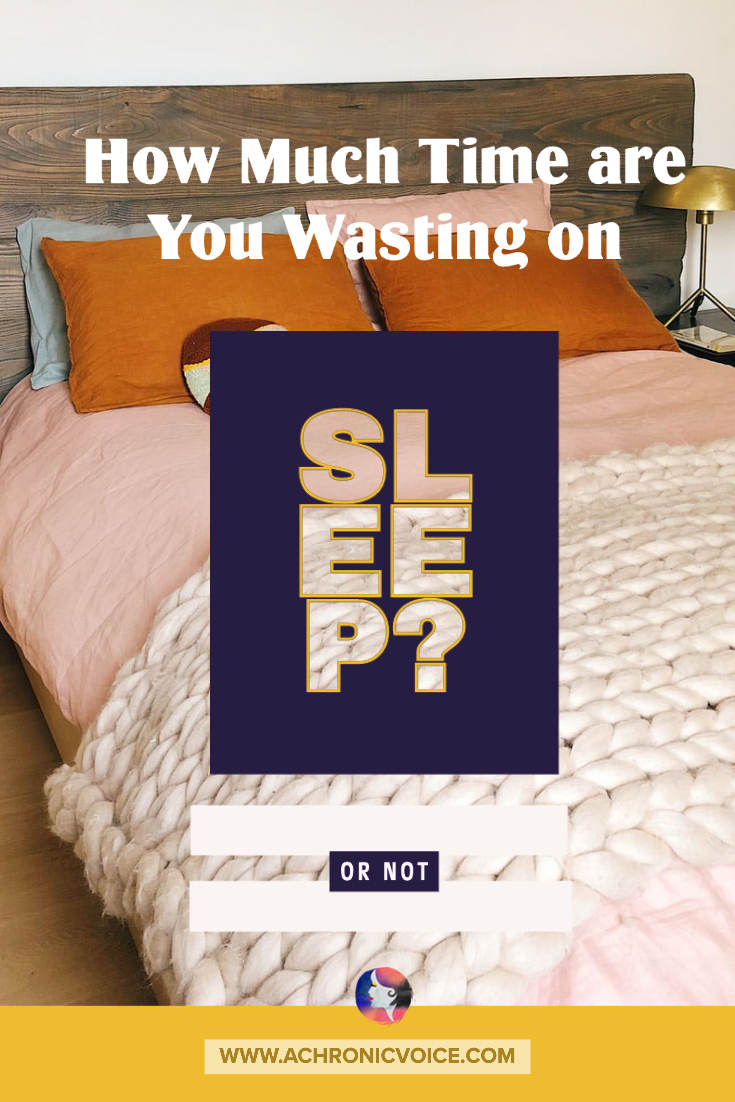
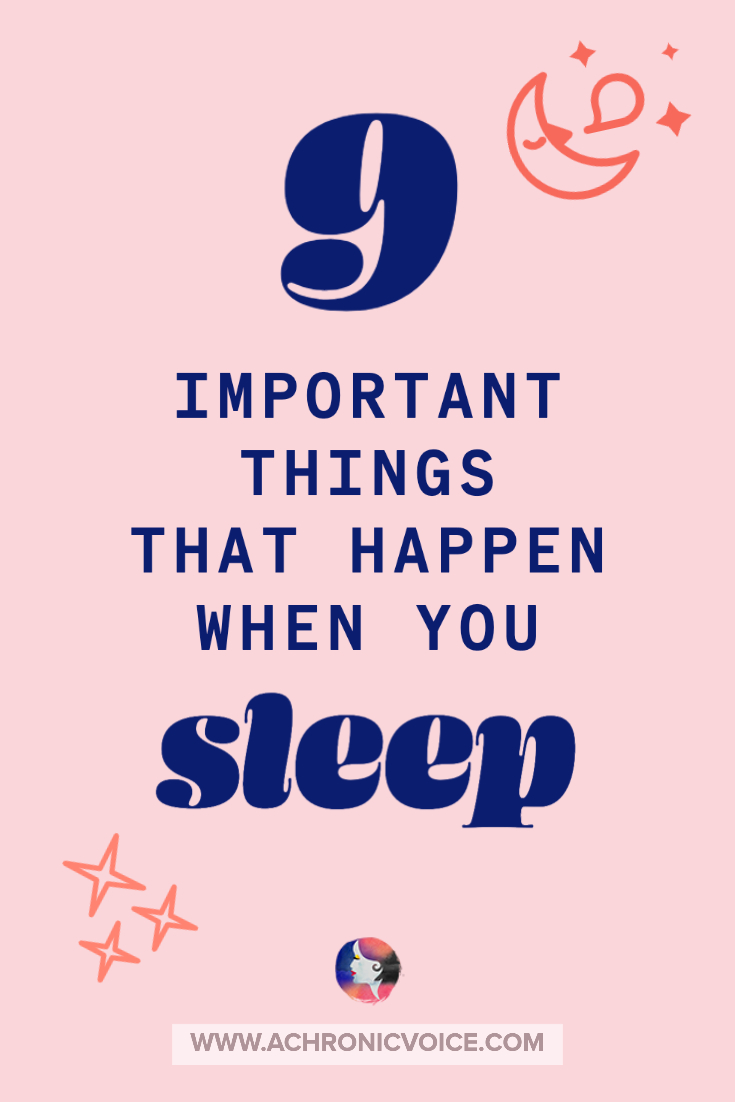

-
For More Insight:
- While We Sleep, Our Mind Goes on an Amazing Journey (nationalgeographic.com): https://on.natgeo.com/2zZ3n5x
- Brain Basics: Understanding Sleep (nih.gov): https://goo.gl/nzKa5Y
- Cellular Garbage Disposals Clean Up (livescience.com): http://goo.gl/qT1Mq1
- Why We Sleep: The Temporal Organization of Recovery (stanford.edu): https://goo.gl/7TDw2N
- Global Sleeping Patterns Revealed by App Data (bbc.com): http://goo.gl/CKBDeP
- Body Clock: What Makes You Tick? (bbc.com): http://goo.gl/RmqSPf
- The Ultimate Guide to How To Sleep Better – Scientific Sleep Tips (countingsheep.net):
-
Sources:
- Rockstrom, M. D., Chen, L., Taishi, P., Nguyen, J. T., Gibbons, C. M., Veasey, S. C., & Krueger, J. M. (2018). Tumor necrosis factor alpha in sleep regulation. Sleep medicine reviews, 40, 69–78. https://doi.org/10.1016/j.smrv.2017.10.005
- Ackermann, K., Revell, V. L., Lao, O., Rombouts, E. J., Skene, D. J., & Kayser, M. (2012). Diurnal rhythms in blood cell populations and the effect of acute sleep deprivation in healthy young men. Sleep, 35(7), 933–940. https://doi.org/10.5665/sleep.1954
- Knutson, K. L., & Van Cauter, E. (2008). Associations between sleep loss and increased risk of obesity and diabetes. Annals of the New York Academy of Sciences, 1129, 287–304. https://doi.org/10.1196/annals.1417.033
- “Anabolism vs Catabolism.” Diffen.com. Diffen LLC, n.d. Web. 28 Apr 2020. https://www.diffen.com/difference/Anabolism_vs_Catabolism
- Norito Kawakami, Naoyoshi Takatsuka, Hiroyuki Shimizu. Diabetes Care Jan 2004, 27 (1) 282-283; DOI: 10.2337/diacare.27.1.282
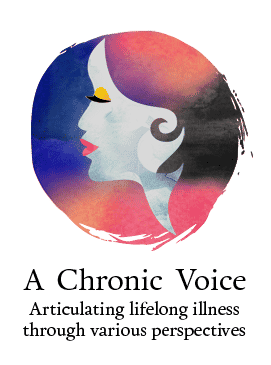
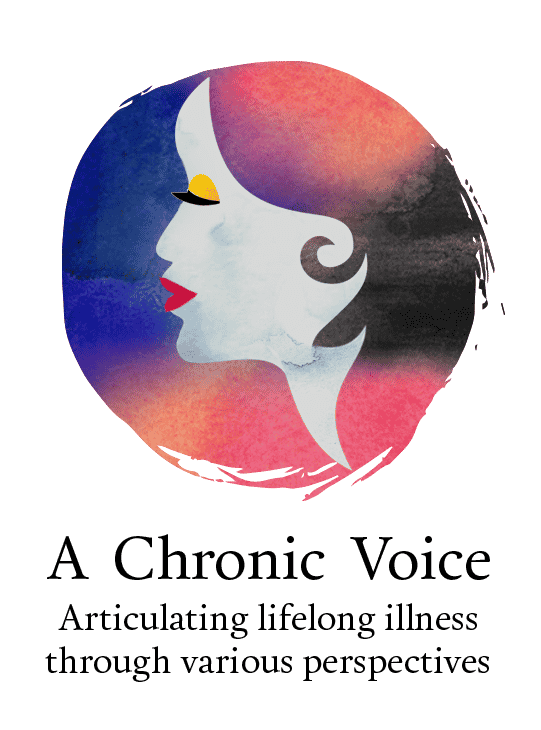
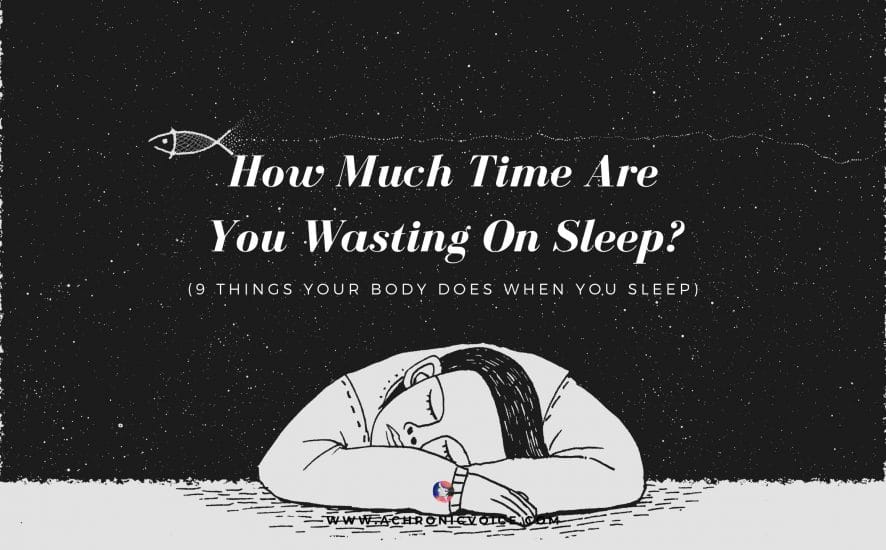
After a week of sketchy sleep, I finally had a full, deep sleep. Fog is lifted. Feels good:)
I’m glad you managed to get some quality sleep. The difference is astounding, isn’t it?!
Just as a type this at 11pm, I know I am doing the wrong thing by not having switched off and trying to relax the mind. I’ve definitely fallen off my nice night-time routine, so maybe reading this post is a sign to be better behaved – especially since you mention tissue repair which is so important in hypermobile-EDS patients like me.
Time to be good – thank you Sheryl 🙂
Well it didn’t help we were all group chatting and having too much fun and ended up sleeping at 3am – you may call me a hypocrite :p I really need to read my own post and fix up my sleeping times! Difficult when in pain in the mornings and afternoons as it throws off the cycle, and there’s work to do – but I definitely can improve it.
This is a really informative and important post! I struggle getting enough rest, and now realize I need to sleep more! Thank you for sharing this!
You’re welcome, Holly. Sleep really is a fascinating science, and there’s still so much we don’t even know about it. But it definitely isn’t a waste of time!
This is just the little nudge I need to be better about not watching TV on my laptop close to bedtime. I’ve been meaning to swap to reading for some time but haven’t done it . . .
Hahaha…me too. Mine is more of doing click threads or catching up with social media, oops. Or watching series indeed. And I have the same ‘problem’…love the idea of reading but my books are in a pile. I’m terrible 🙁
More informative given by you than any doctor give. Thanks for this post.
Thanks for your comment! Lots of research went into this and I guess doctors don’t have time to sit through and run through every single point, especially in public healthcare systems sadly 🙁
Great information! More informative than any doctor I’ve had in the last seven years. Thank you.
Thanks for reading, Felicia! Sometimes doctors are too busy to explain all the ins and outs, I guess, though the parts that directly impact our conditions should be explained!
I’ve not been sleeping great lately and as a result, feeling pretty off, as well as tired. Your post explains exactly why.
Yea sleep, whether we realise it or not, impacts just about every area of our lives. I do hope you manage to get some quality sleep soon. Sending lots of love xxx
What an interesting post this is and I have learnt so much for it thanks Sheryl x
Thanks for reading, Rachael! It’s a really brief overview, but glad it was helpful! 🙂